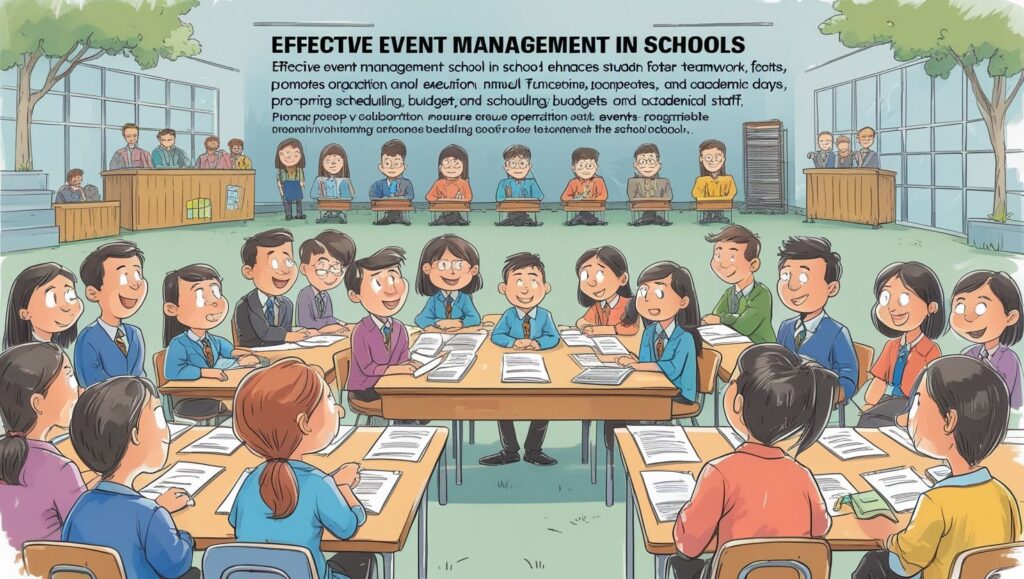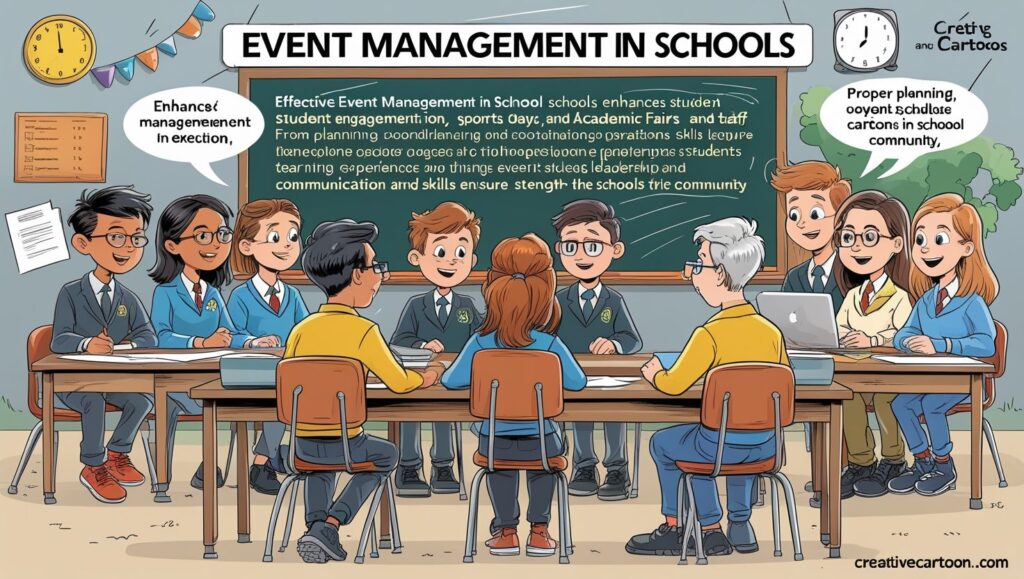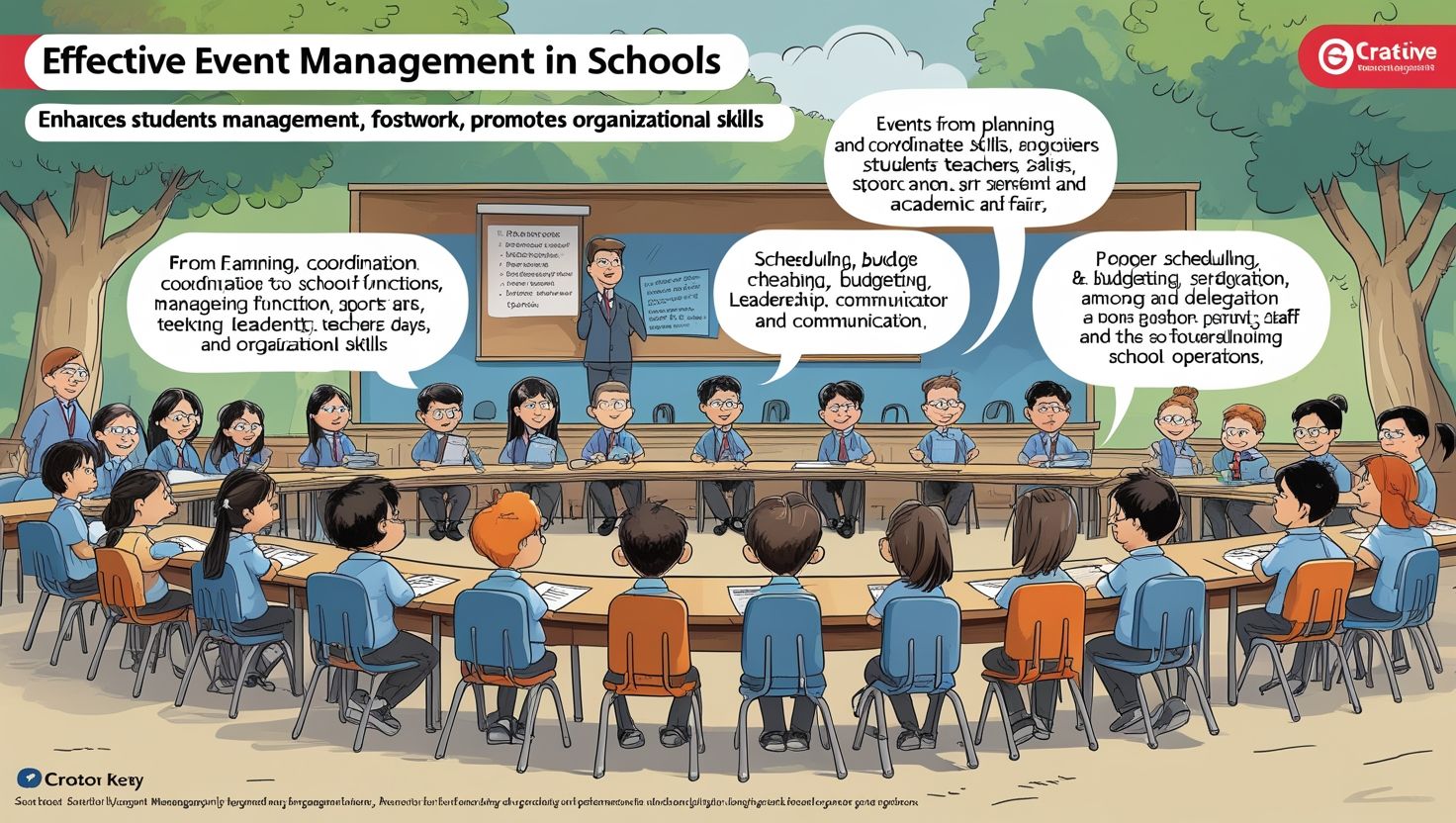Event Management in Schools, Event management in schools is a critical aspect of creating memorable experiences for students, staff, and the community. Whether it’s a sports day, annual function, science fair, or parent-teacher meeting, effective event management ensures that these occasions run smoothly and leave a lasting positive impression. This article explores the key components of school event management, including planning, execution, and evaluation, while highlighting best practices and challenges.
The Importance of Event Management in Schools
School events play a vital role in fostering a sense of community, enhancing student engagement, and showcasing talents. They provide opportunities for students to develop skills such as teamwork, leadership, and time management. For teachers and administrators, events are a platform to celebrate achievements and strengthen relationships with parents and the wider community. Effective event management ensures that these objectives are met while minimizing stress and disruptions.
Planning: The Foundation of Successful Events
The first step in event management is meticulous planning. This involves defining the purpose, goals, and target audience of the event. For instance, a science fair aims to encourage creativity and scientific thinking, while a cultural fest celebrates diversity. Once the objectives are clear, a detailed timeline should be created, outlining tasks such as venue booking, budget allocation, and resource procurement. Assigning roles and responsibilities to a dedicated team is crucial to avoid last-minute chaos.
Budgeting is another critical aspect of planning. Schools must allocate funds for venue decoration, refreshments, equipment, and other necessities. Fundraising activities, such as bake sales or sponsorships, can help cover costs. Additionally, contingency plans should be in place to address unforeseen challenges like bad weather or technical glitches.
Execution: Bringing the Event to Life
The execution phase is where all the planning comes to fruition. On the day of the event, the focus should be on ensuring everything runs according to schedule. This includes setting up the venue, coordinating with vendors, and managing attendees. Clear communication among team members is essential to address any issues promptly.
Student involvement is a key factor in successful execution. Assigning roles such as emcees, ushers, or performers not only reduces the workload for staff but also boosts student confidence and ownership. For larger events, technology can be leveraged for tasks like registration, ticketing, and live streaming.

Challenges in School Event Management
Event Management in Schools, Despite careful planning, school event management often faces challenges. Limited budgets, time constraints, and conflicting schedules can hinder preparations. Additionally, ensuring the safety and well-being of participants is a top priority, especially for outdoor events or those involving large crowds. Schools must adhere to safety protocols and have first-aid arrangements in place.
Another common challenge is maintaining student engagement. Events that are poorly organized or lack clear objectives may fail to capture the interest of attendees. To overcome this, schools should incorporate interactive elements, such as quizzes, games, or hands-on activities, to keep participants engaged.
Evaluation: Learning from Experience
Post-event evaluation is an often-overlooked but essential step in event management. Gathering feedback from attendees, volunteers, and organizers helps identify strengths and areas for improvement. Surveys, suggestion boxes, or informal discussions can be used to collect insights.
Analyzing the event’s success against its objectives is also important. For example, did the science fair inspire students to explore STEM fields? Did the cultural fest promote inclusivity? Answering these questions provides valuable lessons for future events.

Best Practices for School Event Management
Event Management in Schools, To ensure successful events, schools should adopt the following best practices:
- Start Early: Begin planning well in advance to avoid last-minute rushes.
- Delegate Tasks: Assign responsibilities to a capable team to distribute the workload.
- Communicate Clearly: Keep all stakeholders informed about schedules, roles, and expectations.
- Incorporate Technology: Use tools like event management software or social media for promotion and coordination.
- Focus on Safety: Prioritize the safety and well-being of all participants.
- Encourage Creativity: Allow students to contribute ideas and take ownership of the event.
Conclusion
Event management in schools is a multifaceted process that requires careful planning, effective execution, and thorough evaluation. By involving students, leveraging technology, and adhering to best practices, schools can create memorable and impactful events. These occasions not only enrich the school experience but also contribute to the holistic development of students. With proper management, school events can become a source of pride and joy for the entire community.
References
- Allen, J. (2009). Event Planning: The Ultimate Guide to Successful Meetings, Corporate Events, Fundraising Galas, Conferences, Conventions, Incentives, and Other Special Events. Wiley.
- Goldblatt, J. (2014). Special Events: A New Generation and the Next Frontier. Wiley.
- Silvers, J. R. (2012). Professional Event Coordination. Wiley.
- Shone, A., & Parry, B. (2019). Successful Event Management: A Practical Handbook. Cengage Learning.
- Bowdin, G., Allen, J., O’Toole, W., Harris, R., & McDonnell, I. (2012). Events Management. Routledge.

7 thoughts on “Event Management in Schools”
Comments are closed.